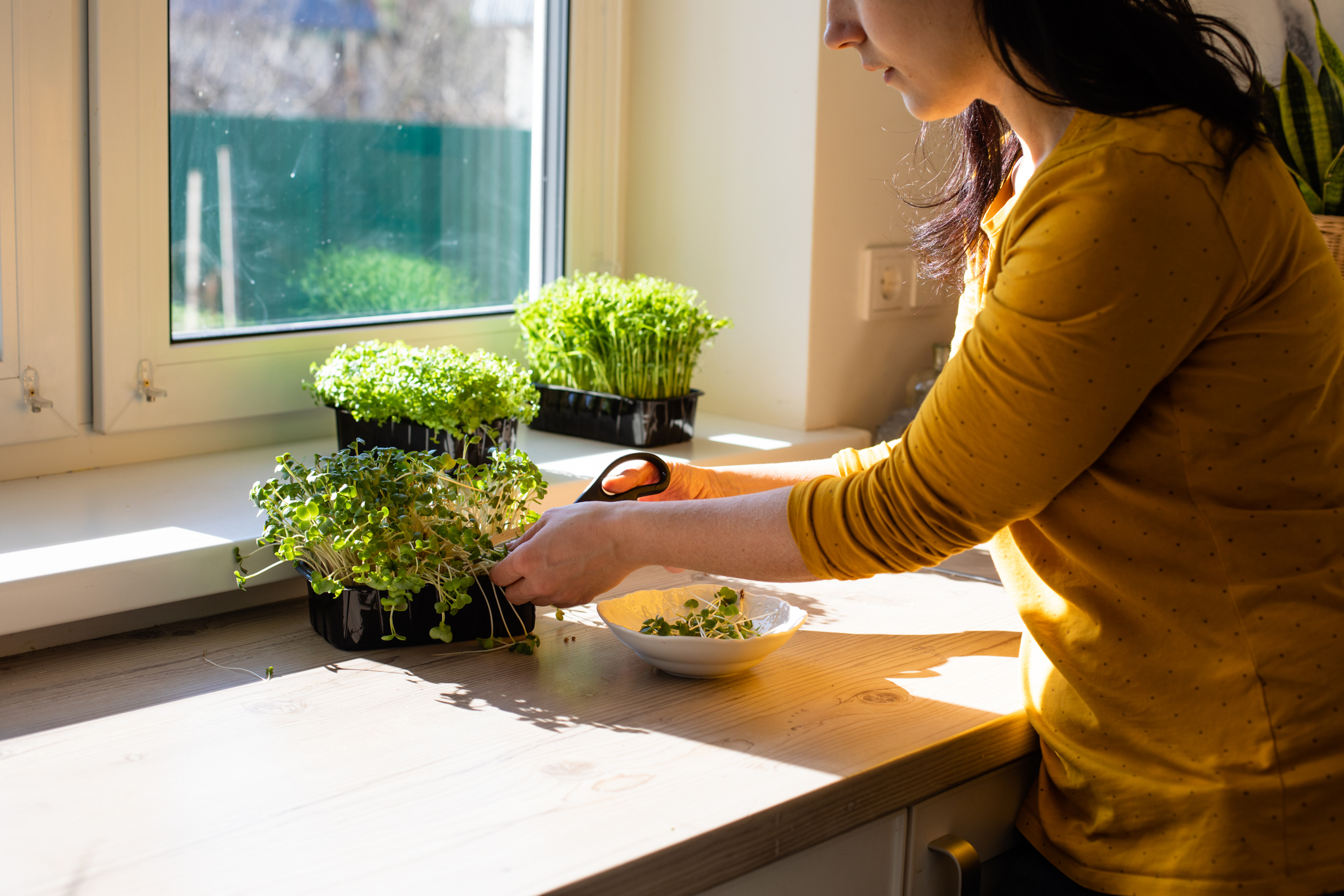Get Easy Health Digest™ in your inbox and don’t miss a thing when you subscribe today. Plus, get the free bonus report, Mother Nature’s Tips, Tricks and Remedies for Cholesterol, Blood Pressure & Blood Sugar as my way of saying welcome to the community!
Grow an indoor garden and watch your immune system flourish

One of the downsides of living in a city is there’s usually not enough room to have a garden.
And that’s a shame because gardening comes with health benefits beyond growing your own organic food or favorite succulents…
For starters, it’s a great outdoor activity that supports good joint health and reduces stress. Even better, people who are dedicated gardeners get a significant longevity boost from it.
And if your “garden” only consists of houseplants, well, you can thank them for keeping your indoor air clean.
Now, there’s even more evidence of gardening’s positive impact on our health — especially for those like me who live in an urban environment…
Soil, microbes and your immune system
Research has previously shown us that getting our hands dirty has benefits.
That’s because contact with microbially rich materials derived from nature, like dirt and plants, alters the human microbiota.
In a collaborative study between the University of Helsinki, Natural Resources Institute Finland and Tampere University in Finland, subjects committed to try their hand at urban gardening to see if gardening on a constrained level could still be of benefit.
One group of participants used a growing medium for their plants that had high microbial diversity emulating the forest soil — while the other used a microbially poor peat-based medium that’s widely used, especially when getting plants from a nursery.
The results were amazing. After one month of gardening indoors, the participants who used the forest soil medium experienced an increase in their skin’s bacterial diversity and higher levels of anti-inflammatory molecules in the blood.
But the peat-based medium group? They had none of these benefits.
What this means is that gardening could lead to long-term changes in immune system functioning — but microbes are the key.
“The findings are significant, as urbanization has led to a considerable increase in immune-mediated diseases, such as allergies, asthma and autoimmune diseases, generating high healthcare costs,” says doctoral researcher Mika Saarenpää from the University of Helsinki. “We live too ‘cleanly’ in cities.”
Saarenpää notes that urbanization leads to reduced microbial exposure and changes in the human microbiota. “This is the first time we can demonstrate that meaningful and natural human activity can increase the diversity of the microbiota of healthy adults and, at the same time, contribute to the regulation of the immune system,” he says.
Urban gardening: Little space, big benefit
Saarenpää says at its best, microbe-mediated immunoregulation can lower the risk of immune-mediated diseases or potentially even reduce their symptoms. Increasing this healthy microbial exposure at the population level could even reduce the healthcare costs and improve people’s quality of life.
“We don’t yet know how long the changes observed in the skin microbiota and anti-inflammatory cytokines persist, but if gardening turns into a hobby, it can be assumed that the regulation of the immune system becomes increasingly continuous,” he adds.
According to Saarenpää, exposing children to nature and microbes is especially important since immune system development is most active in childhood. He recommends introducing plant boxes filled with microbially rich soil at kindergartens, schools and even hospitals, especially those located in densely built urban areas.
To minimize risks associated with urban gardening, he cautions to ensure the skin on your hands is unbroken and avoid inhaling dusty growing media.
So, if you live in an apartment in an urban area like me, what can you do to gain the benefits of gardening?
Beneficial microbial exposure through gardening can be practiced easily at home year-round with minimal space or financial investment.
In the study, participants gardened in regular flower boxes filled with plants like peas, beans, mustards and salads that came from regular shops.
It’s easy to start growing plants indoors, near a window. Then, if you’re lucky enough to have access to a balcony or roof space, or even a tiny plot of a yard, you could move your garden outdoors when the weather warms up.
That way, you’ll gain the benefits of fresh air and sunshine along with the microbial benefits of the garden.
Editor’s note: Regain your health and enjoy a full, vibrant life by defeating the real culprits of premature aging and sickness — excessive, damaging acid in your body! The truth is when you’re alkaline, wellness thrives and sickness takes a dive. Click here to discover The Alkaline Secret to Ultimate Vitality!
Sources:
1. Urban gardening may improve human health – Research subjects benefitted from microbial exposure that boosts the immune system — EurekAlert!
2. Urban indoor gardening enhances immune regulation and diversifies skin microbiota — A placebo-controlled double-blinded intervention study — Environment International














